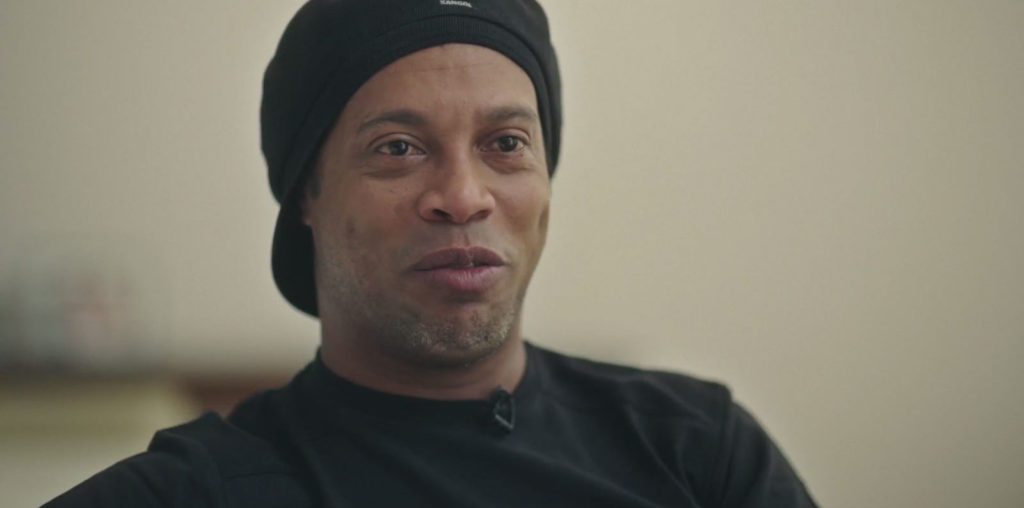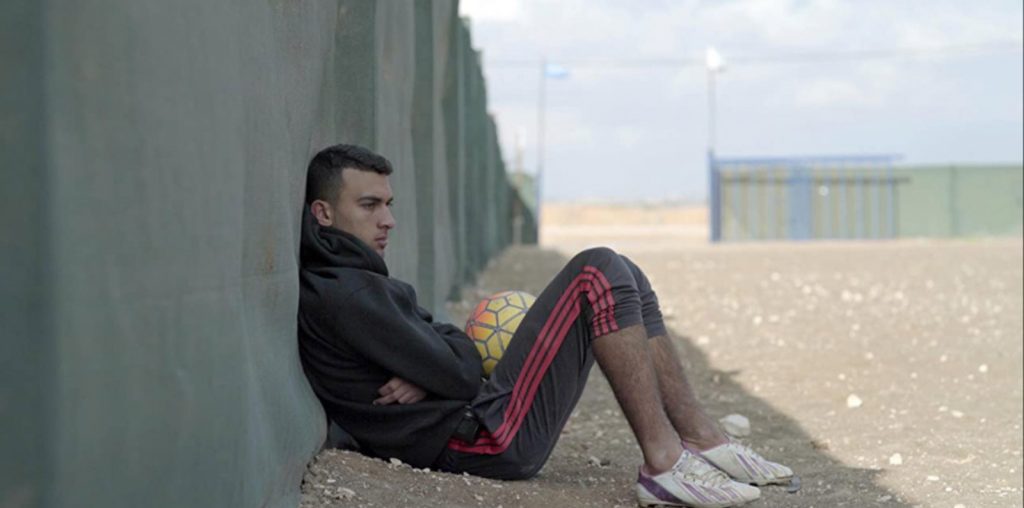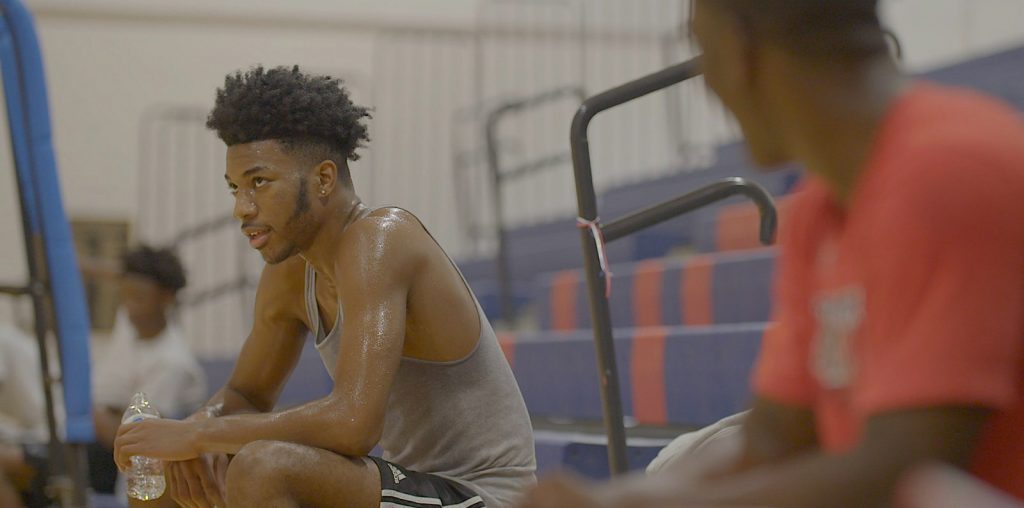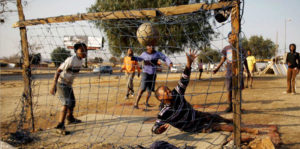
It’s no secret that sports, like American football, basketball, and baseball, are seen as the preverbal lottery tickets for many of our youth and their families to rise out of poverty in the U.S. The same thing holds true worldwide with European football (soccer, duh). In The Price of the Game, filmmakers Timo Joh. Mayer and Johannes Guttenkunst explores football’s role in the lives of African youths, both the good and the horrible.
I’m not saying anything new, but football is a big deal to the rest of the world. Unlike American football, the sport is loosely regulated, which opens itself to the exploitation of rising stars, particularly in Africa. The business of football is massive and lucrative. Because it crosses into so many countries, creating a level playing field and ensuring players are paid fairly are both monumental, if not impossible, tasks.
The Price of the Game focuses on European football’s unintended consequences on African youths. Africa is a veritable gold mine of youthful talent for European clubs, while at the same time is the “Golden Ticket” for any player lucky enough to become a pro. The documentary takes place primarily in Ghana. Its people and villages live in poverty, but the youth work hard on mostly dirt fields and flat soccer balls, hoping that a scout might happen to see them play.
This economic desperation has opened Ghanaian youth to potential exploitation. Scouts and agents pick up naive players, promise their families the world, and then take an excessive cut of their earnings. The prospects are often signed to onerous contracts for long periods of time and ultimately paid far less than what they’re worth. FIFA has made attempts in the past to put in rules that supposedly benefit and protect the players. But rules were made to be broken.
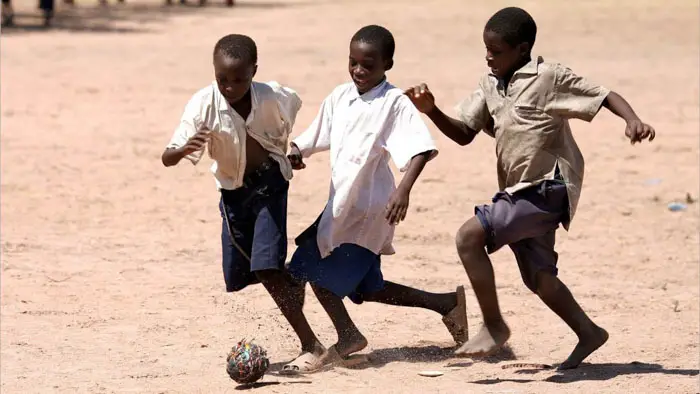
“Africa is a veritable gold mine of youthful talent for European clubs, while at the same time is the ‘Golden Ticket’…”
FIFA has instituted minimum age restrictions, though agents and players can easily bypass them by lying. Part of the problem with taking in young players is that they are still children and not mature enough to make adult decisions, like signing contracts and living alone in a foreign country. Moreover, few are street-smart enough to avoid scams. Then there’s the racism — particularly for African boys residing in, say, Germany, to play football, taking a spot from a European. Football is the only way they contribute to their new home.
What about the money? Again, players are not always savvy enough to negotiate contracts where Europeans earn millions and Africans earn hundreds. The Price of the Game shows that those who make millions are under tremendous pressure not only to provide for their families but for their home villages as well. Then there’s the pressure to spend it wisely and not on drugs, alcohol, and women. Because of the amount of money flowing through the football system, there is also corruption and bribery, resulting in owners being protected from potential improprieties.
The film features prominent African football figures, including Neymar Jr. (Paris Saint-Germain), Paul Pogoba (Juventus FC), Otto Addo (Ghana Head Coach), Imbrahim Tanko (Ghana Coach), Charles Akonnor (Ghana), Marvin Matip (FC Ingolstadt 04 II). They’re here to uncover the problem associated with the sport regarding training, recruitment, and, ultimately, the dreams of African youth. The documentary approaches the subject from the African perspective, while representation from clubs and governing organizations remains silent… for obvious reasons. Though one-sided, it’s hard not to see the filmmakers attempting to be fair while bringing awareness to an important message of the exploitation of these children. They even dance around the subject of “slavery,” producing some interesting conversation about whether the comparisons are fair.
The system regarding youths in sports is broken, and though the NFL has problems, they are nowhere as bad as the rest of the world. The Price of the Game exposes the dark side of global professional sports and asks if corporate greed will ultimately win out in the end.
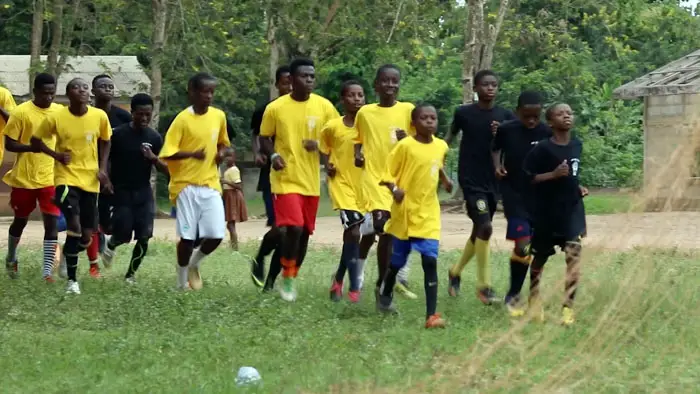
"…exposes the dark side of global professional sports..."
